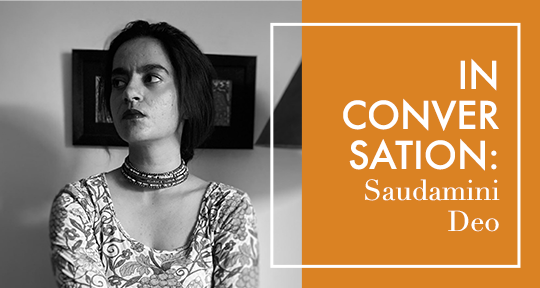An unfortunate reality is that every language has great writers who have faded from the collective memory; either they fell out of favour, or their writing spoke only to their time, or perhaps they practiced on the margins, and their work never made it beyond a small readership. Difficulties in categorising a writer’s work is especially likely to put them in peril—writing that doesn’t fit neatly into one particular genre or tradition is easier to overlook than to perpetually seek its niche. And when these writings are forgotten, a small miracle needs to occur for them to be rediscovered again.
For the first time, English language readers will have the opportunity to read forgotten Hindi writers thanks to a new and, arguably, miraculous series from Seagull Books, based in Kolkata. First to be published are short story collections by Bhuvaneshwar and Rajkamal Chaudhary, names which may be unfamiliar to readers in their native India, let alone to readers beyond. Wolves and Other Short Stories by Bhuwaneshwar will be released in Fall 2020, and Traces of Boots on Tongue and Other Stories by Rajkamal Chaudhary is due for release in early 2021.
To understand what was lost and what has been gained with these new translations, I asked translator Saudamini Deo why we should refresh the collective memory by reviving the work of Bhuvaneshwar and Rajkamal Chaudhary, and what it means for the English-speaking world to have access to their work for the first time.
—Tristan Foster, June 2020
Tristan Foster (TF): Your translations of short story collections by Bhuwaneshwar and Rajkamal Chaudhary are forthcoming from Seagull Books, with translations of work by other forgotten Hindi writers to follow. How did the series come about?
Saudamini Deo (SD): Last year, I wrote a series of articles published by Scroll.in about forgotten Hindi writers. Naveen Kishore of Seagull Books read those articles, and graciously offered to publish some of these writers as a part of their Hindi series under their India list. Neither Bhuwaneshwar nor Rajkamal Chaudhary has ever been translated into English before, which is indicative of a larger pattern: Hindi literature rarely gets translated.
TF: I want to talk first of Wolves and Other Short Stories by Bhuwaneshwar. His narratives are rhythmic, dreamy, and brutally pessimistic. The story “Wolves” tells of a caravan being chased by a pack of wolves in the night; girls are thrown off to lighten the load and stop the attack. In “Sun worship,” he writes: “This is hell, doctor, hell! A colony of the dead. This bustling city is a colony of the dead . . . Imagine that rain dissolves this place like a load of cow dung. But it will not make any difference in the world.” This harshness is even occasionally acknowledged—in “Alas, Human Heart,” the narrator discusses the carefree life he lived with friends, playing card games and going on hikes, all of them optimistic because “no one had yet had a break to look life in the eye.” The Bhuwaneshwar story looks death square in the eye. What was your experience immersing yourself in his world?
SD: As with most experiences, it was both strange and not strange. It was the first time that I was translating him, but I have been reading him forever—I wrote a paper on him during my master’s degree. So, I knew what I was getting into—I already knew the brutal pessimism and the omnipresent death in his work. What was new to me were the moments of tender insight and human ambivalence. In the story “Wolves,” right before the father is about to jump off of the caravan amidst wolves, he takes off the new shoes he is wearing and instructs his son to sell them (dead men’s shoes are never worn). I thought about this little detail for a long time. A man about to kill himself thinking about his shoes. In the story “Freedom: A Letter,” a single mother describes her life in a hill station hospital (she is a doctor) and the story is not dramatic, nothing happens, and in the end she just writes, “What is this thing called freedom? Nothing can be known about it without acquiring and using it.” It is especially moving because of its simple truth. It also acquires a political meaning considering Bhuwaneshwar was writing in pre-independence India, and he seems ambivalent about the idea of freedom itself, not necessarily politically—the idea of freedom as the ultimate harbinger of hope. Freedom can change everything except human nature. We are witnessing this in India right now. In any case, I can’t think of anything more symbolic of our times than wolves constantly chasing us. I think I emerged out of my immersion in his work with the feeling that perhaps we are all already immersed in Bhuwaneshwar’s world. READ MORE…




